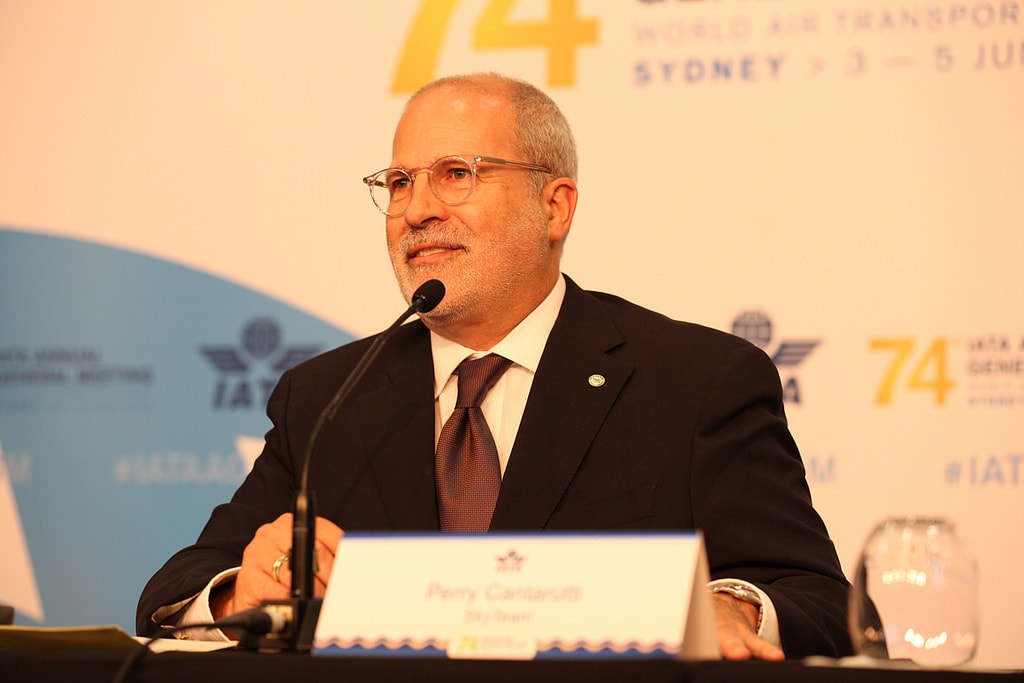SkyTeam and Star Alliance Reveal Digital Technology Initiatives
Share

APEX Insight: Global airline alliance SkyTeam introduced the SkyLink Digital Spine at IATA AGM this week, while Star Alliance members have started rolling out three digital initiatives designed to improve the customer experience.
SkyTeam introduced the SkyLink Digital Spine, a seamless ancillaries program, at the International Air Transport Association (IATA) Annual General Meeting in Sydney yesterday. SkyTeam developed the SkyLink Digital Spine as a means of bridging the technology differences between its members, helping member airlines remove common travel pain points and provide passengers with greater simplicity and convenience when flying with multiple SkyTeam members.
The program allows the alliance members to exchange seat maps and cross-sell ancillary products. Customers will now be able to seamlessly select seats and other ancillary products for all legs of the journey, regardless of which SkyTeam airline they booked their ticket with.
Delta and Aeromexico will be the first member airlines to roll out the product from mid-July, with a further five airline members to follow by the end of the year and the rest in 2019, says Perry Cantarutti, SkyTeam CEO. The move is part of SkyTeam’s efforts to remove pain points for travelers, he says, with the lack of seamless ancillaries topping the list of travel gripes for the alliance’s frequent travelers.
SkyTeam is looking to add further service-related transactions to the SkyLink Digital Spine, with Cantarutti pointing to check-in and loyalty program applications. SkyTeam has already launched a number of technology-based initiatives this year in response to customer needs, including SkyTeam Rebooking, which allows passengers to seamlessly rebook following flight delays, cancellations and diversions; and airport maps to guide passengers around SkyTeam hubs and improve the transfer process.
Star Alliance members have started rolling out three digital initiatives designed to improve the customer experience – interline baggage tracking, allowing passengers to track their bags throughout the journey; interline seat assignment at the point of reservation; and information on in-flight amenities, including in-flight entertainment, connectivity and meals.
“We are trying to understand how we can leverage technology … for a better customer experience.” – Jeffrey Goh, Star Alliance CEO
“We are trying to understand how we can leverage technology, especially digital technology, for a better customer experience,” says Jeffrey Goh, Star Alliance CEO. The focus going forward is on touchpoints in the customer’s journey where digitization can improve the experience, says Goh, with a better solution for irregular operations at the top of the alliance’s list for development this year.
Digital transformation was a major talking point at this year’s IATA AGM, with Emirates president Sir Tim Clark saying that airlines need to transfer all of their processes and customer-facing activities to a digital platform.
The airline industry needs to step up and use data, concurs Air New Zealand CEO Christopher Luxon, adding that artificial intelligence (AI) can be applied to all aspects of the business and provides a big opportunity to transform the customer experience.
KLM CEO Pieter Elbers also believes AI provides a good opportunity to transform the business, particularly when it involves travel disruptions. KLM announced at the event that it has partnered with the Boston Consulting Group to offer AI-based tools to the industry to improve airline operations. Elbers says KLM has been a frontrunner in many digital areas, particularly social media, but concedes it has been less successful in digital initiatives on the operational side. “Our customers have been better informed at times [through our social media] than some of our airline employees,” he says.
The partners have developed a set of tools using AI, machine learning and advanced optimisation to allow airlines to resolve issues concerning fleet, crew, ground services and network in the case of a travel disruption. The partners have started talking to airlines about the tools, with Elbers reporting considerable interest from airlines.


